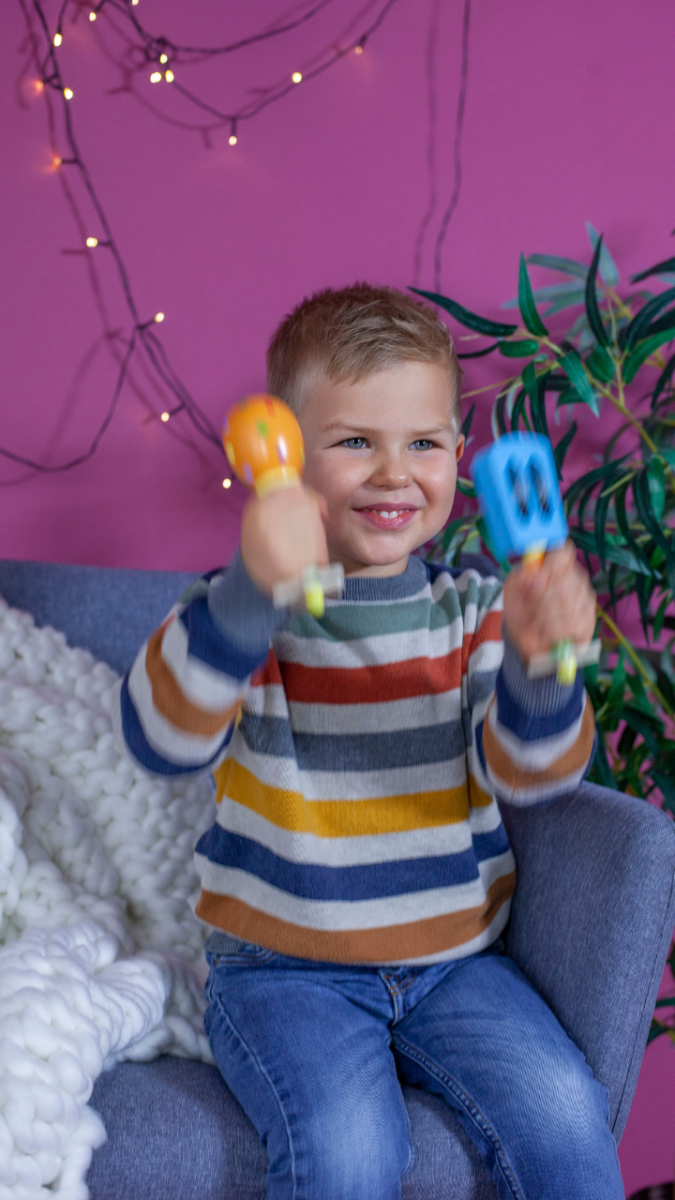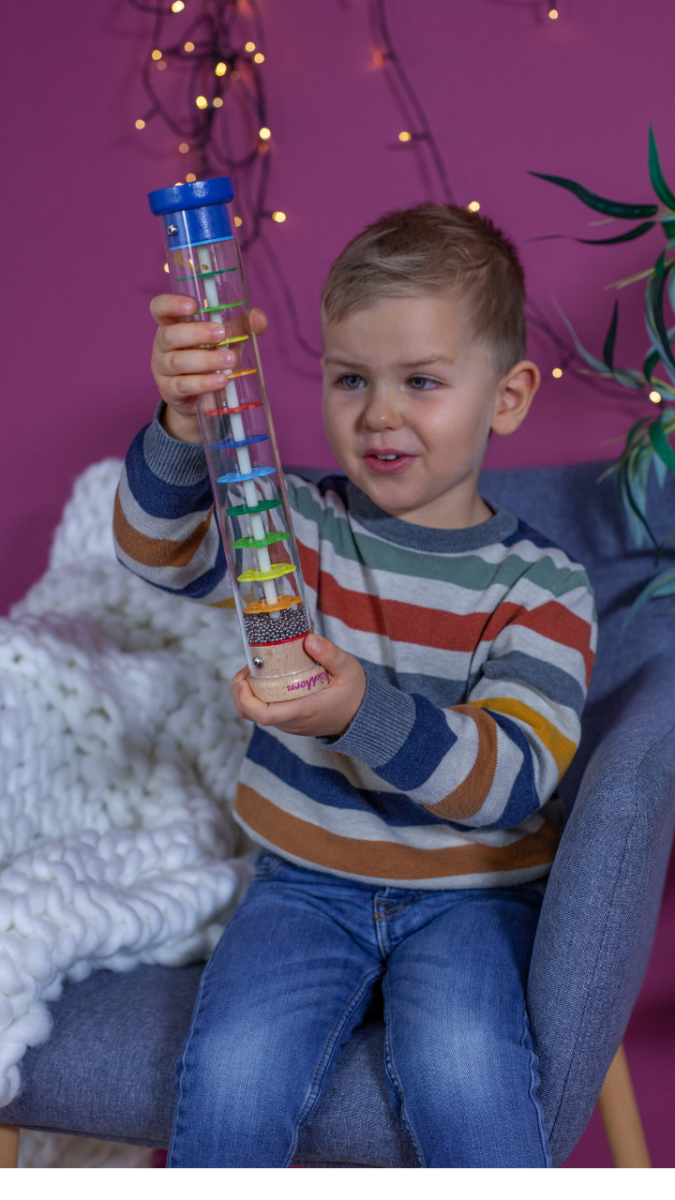Conquer the world of sound
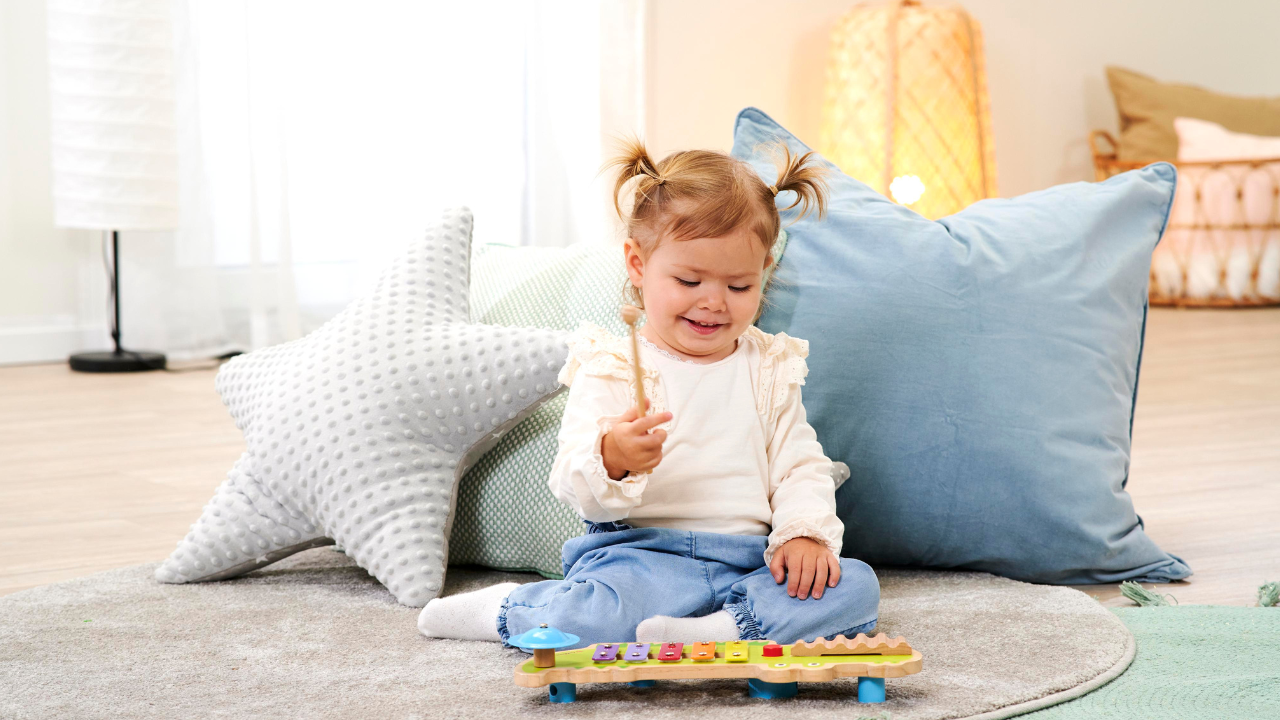
-
By
Katrin F.
Sounds, rhythms, harmonies: Musical toys in early musical education
Humming, whistling, clapping, dancing and singing: Anything to do with music triggers pure enthusiasm in many children. No wonder, after all, music is something that can influence our emotions and sometimes touches us deeply. Early music education uses the great impact of music and the many learning opportunities it has to offer to encourage children.
We explain the benefits of making music with children, take a closer look at early musical education with instruments and give you practical tips on how to encourage your child's musical development.
What is early musical education and why is it important?
Early music education playfully opens the door to the world of music for children. Although it is traditionally aimed at pre-school children, younger children can also benefit from simple musical activities such as singing and playing simple instruments.
The added value of early support for children in the area of music is obvious: children can gain experience with rhythms, sounds and instruments, explore their interests and live out their childhood curiosity in a musical way. While playing music together with your child, many "heartfelt moments" are automatically created that will remain as beautiful memories. This is one of the reasons why we at Eichhorn are so keen to give children a child-friendly introduction to making music with high-quality musical toys.
What are the advantages of early musical education?
Let's take a detailed look at the many benefits of early musical education:
Stimulating the senses
Sensory perception plays a central role both when listening to music and when dancing and making music. Of course, this primarily refers to the sense of hearing. Listening attentively to music and the sounds that various instruments produce trains the ear and sharpens the sense of hearing for ever finer nuances of tone. In addition, your child can of course also use their sense of touch during early musical education with instruments to get to know the different musical utensils haptically.
Satisfying children's curiosity
As already mentioned, making music with children appeals to their curiosity. When children are exposed to different musical styles, sounds and instruments and have the opportunity to gain new experiences, this quenches their thirst for knowledge and satisfies their desire to learn.
Promoting cognitive skills
On a cognitive level, instruments for early musical education promote your child's concentration. They have to focus precisely in order to press the right keys, drum in the right rhythm or pluck the right string at the right moment. However, not only making music, but also listening to music is beneficial for cognitive skills. Recurring rhythms and repetitive melodies can have a positive effect on the development of logical thinking. Singing and listening to songs with lyrics also promotes language skills.
Promoting emotional development
Anyone who has ever cried to a profound song or danced exuberantly to a cheerful song knows that music can trigger emotions. Accordingly, engaging with music creates space for emotions and enables children to explore their emotional world in a playful way.
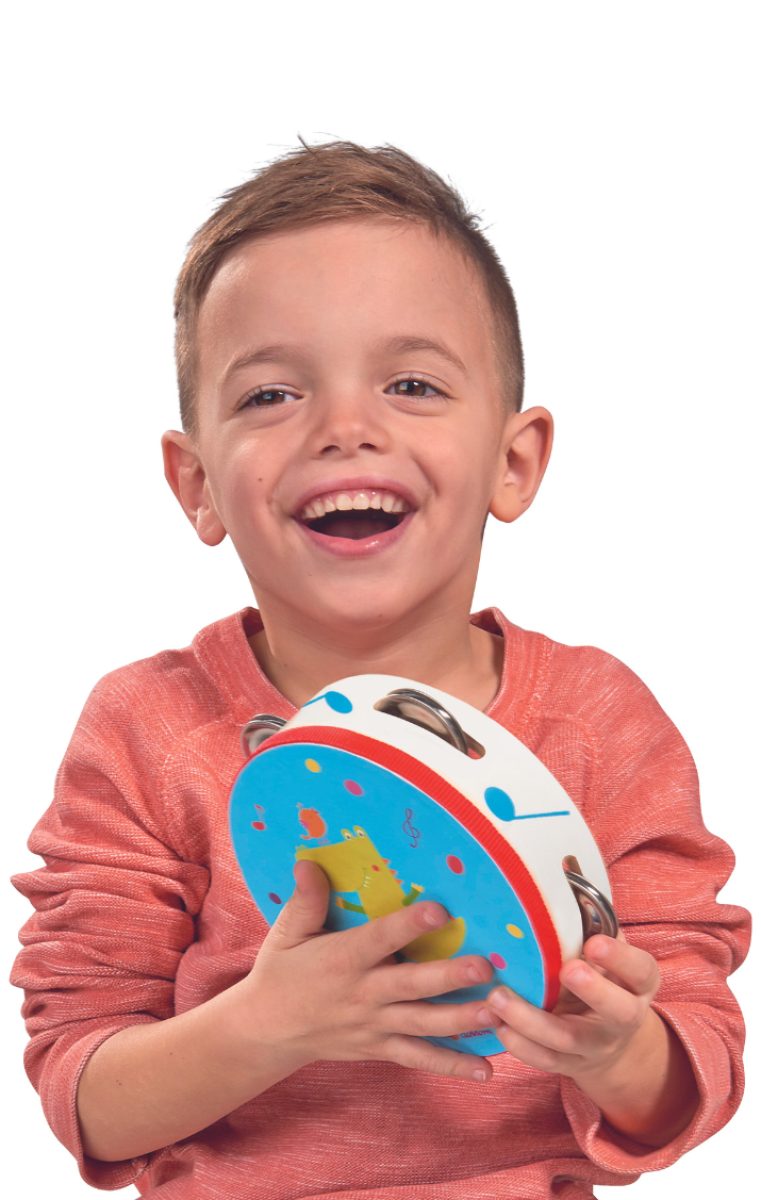
On the other hand, making music with children is also about translating their own feelings into sounds and expressing them through music.
Promoting social skills
In the context of early musical education, it is often the case that not everyone learns on their own. Rather, there are many advantages to singing or playing instruments together. This gives early musical education a social component. The young musicians have to coordinate with each other, can give each other tips and experience the whole range of social interaction in the context of music.
Promoting motor development
Playing an instrument requires fine motor skills, even with simple children's instruments. Consequently, musical toys also promote your child's motor development.
What does early musical education involve?
Just how versatile early musical education is becomes clear when we look at its sub-areas:
Making music and singing
Singing is very obvious and has a firm place in early musical education. Children learn to recognize and repeat melodies, learn to use their own voice and begin to find out what kind of music suits their current personal taste.
Instruments
Early musical education with instruments is particularly exciting. This is not necessarily about immense "technical" learning progress or even perfection, but rather about trying things out. The kids can try out different instruments, get to know their differences and similarities and try out what they enjoy without any pressure.
Dance and movement
Dances and accompanied movement games also enrich early musical education. Above all, this element promotes motor skills, improves body awareness and contributes to rhythm training.
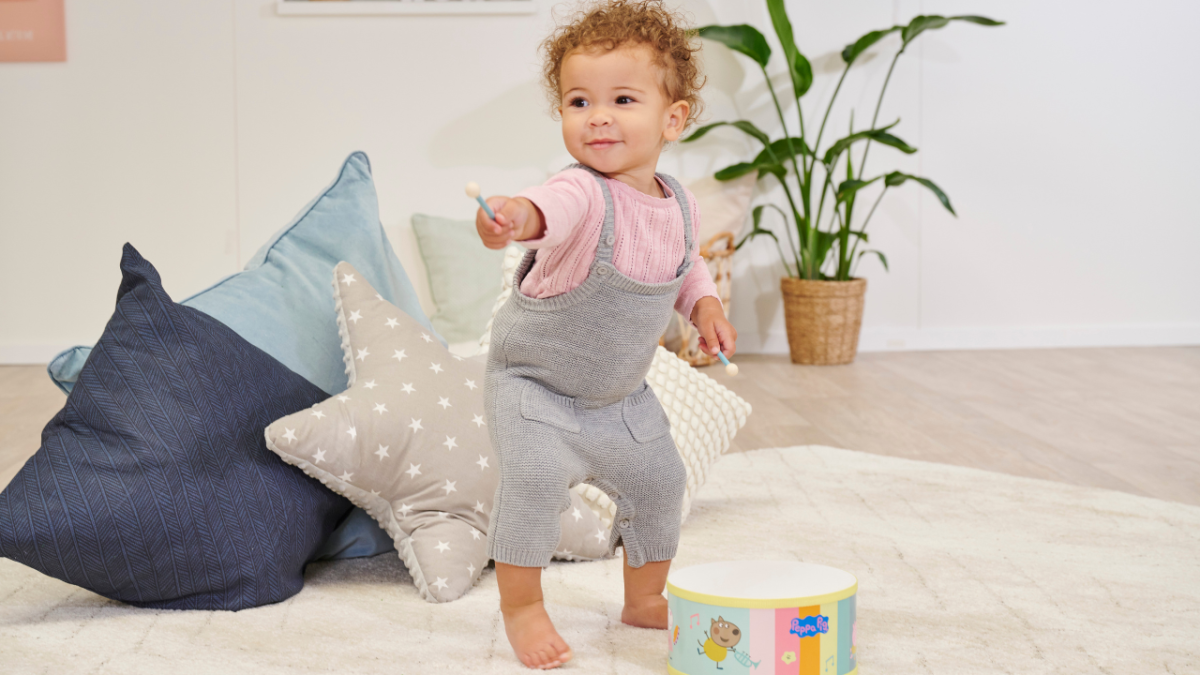
Make music together with the Eichhorn wooden music toy
If you want to make music with children, you need instruments that are tailored to the needs and abilities of young musicians. Eichhorn music toys are a durable, robust and high-quality option for this purpose, with which nothing stands in the way of meaningful early musical education. Below is a rough overview of our wide range of instruments for children:
Eichhorn rattles
Rattles are ideal for early musical education from the age of 1. These are very easy to handle and, thanks to their sophisticated design, can be gripped comfortably and securely even by small children's hands . Music-loving toddlers, for example, will get their money's worth with our music set grasping toy, which consists of a grasping toy with bells and a wooden sound stick.
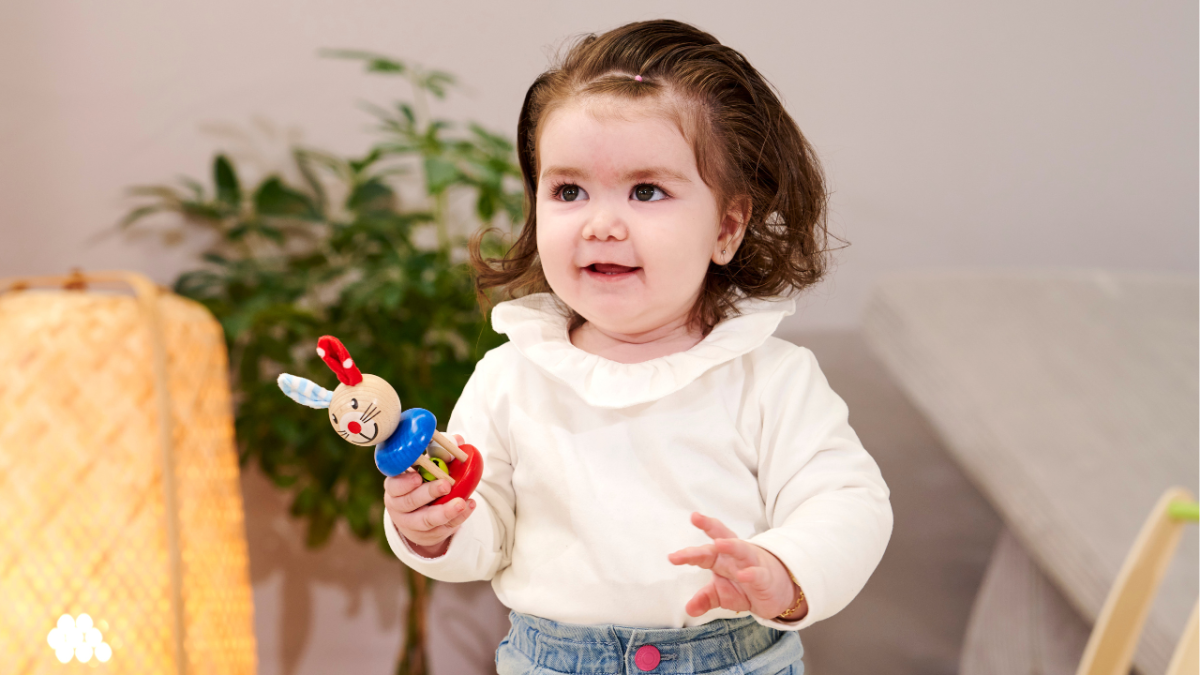
Eichhorn drums and xylophones
To promote a sense of rhythm and cognition, our range includes high-quality children's xylophones. We also carry cheerfully designed drums, for example the Peppa Pig drum, which spices up early musical education from the age of 3.
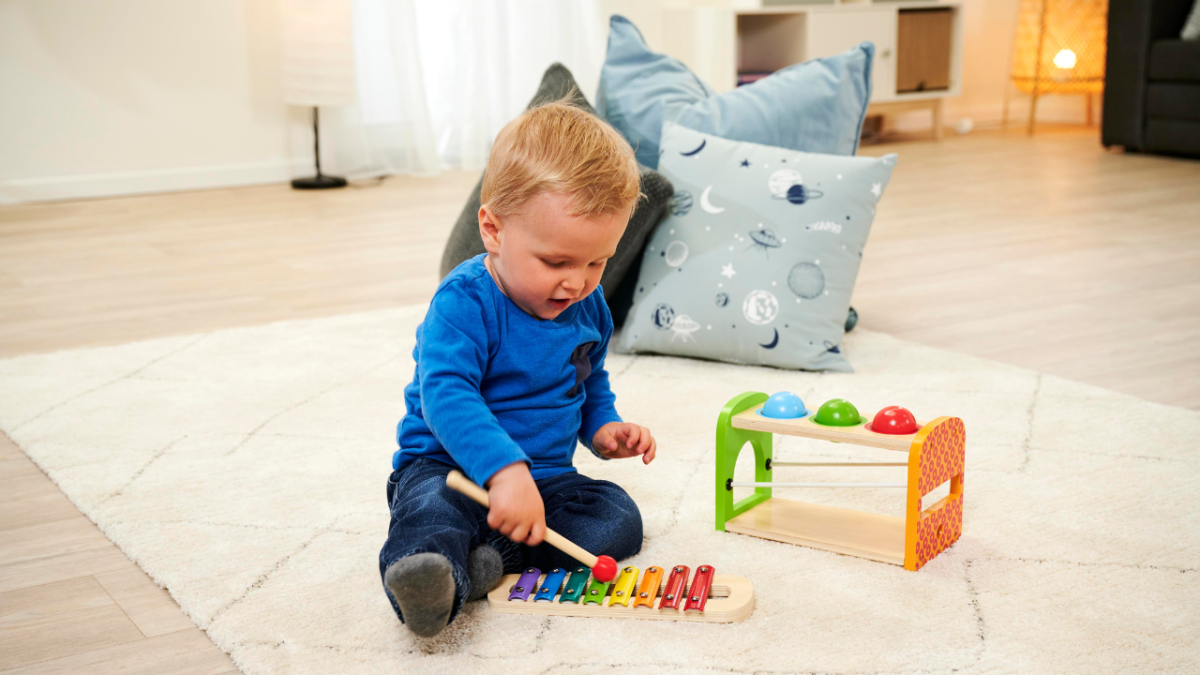
Eichhorn chime sticks and maracas
Suitable even for toddlers, our sound sticks and maracas give your child the opportunity to try their hand at music from the age of one. With the Eichhorn music set with maracas, they can team up with two friends or siblings, form a band and master all kinds of stimulating experiences on an emotional and social level.
Eichhorn music sets
Would you like to offer your child the most comprehensive early musical education possible and are you looking for products that will help build up a wealth of musical experience at an early age? Then you shouldn't miss out on our music sets. These are complete sets with instruments for children, which you can use to make music straight away.
Simple early music education ideas for every day
Do you need ideas for early music education that you can implement together with your child? Then you've come to the right place, because we have all kinds of inspiration for you. For example, how about practising your favorite song including a simple choreography? You can easily combine singing and dancing and get really creative. As soon as you are confident with the lyrics and have practiced the dance diligently, you can plan a small performance with family and friends to show off what you have learned together.
Children's curiosity, on the other hand, is met by guessing games with music. Pick up some instruments, for example the colorful Eichhorn rainmaker or our xylophone tapping bench with several sound options, and ask your child to close their eyes. Now make a sound and it is your child's job to find out which instrument you have used. You can add various household objects to the selection of sounds. For example, pots and wooden spoons can be used as improvised drums, crackling aluminum foil, plastic lids to bang together and rubber bands that you stretch over a can and make it buzz by plucking it.
If the focus of your early music education session is on movement, movement games with musical accompaniment are a good idea. For example, equip your child with colorful scarves that they can swing and twirl through the air while dancing to the music. The stop dance, which is based on two simple rules, is also popular:
- As long as the music is playing, the kids are allowed to move freely around the room
- As soon as the music stops, they "freeze" and freeze in mid-movement until the music starts again
Early musical education can also include small excursions with a culturally stimulating goal. Attend a children's concert together, treat yourselves to a musical or listen attentively to the brass band at the next village festival. If you fancy a bigger project, you can also organize a concert yourself. After all, your child will be more motivated to practice with the Peppa Pig wooden flute or the colorful wooden guitar if they have a clear goal - in this case the concert - in mind. Take a few weeks to rehearse a few pieces of music and plan the concert schedule - and then the big performance can come!
For insecure parents: early musical education from a professional
If you don't feel confident enough to take over the early musical education of your child yourself, you have the option of leaving this task to a professional. There is a wide range of options here and there are certainly music schools, clubs and courses in your area that are geared towards children. The variety on offer includes models with very different focuses, for example
- Movement and physical training: focus on body and rhythm awareness
- Creative activities with music: drawing , expressive dance, handicrafts and other creative activities in combination with music
- Singing clubs: children's choirs and singing groups for kids
- Parent-child courses: joint games (e.g. finger games and verses) related to music, usually aimed at parents with children aged 12 months and over
- Early instrumental support: getting to know the instruments and learning the basics (usually for children aged 3 and over)
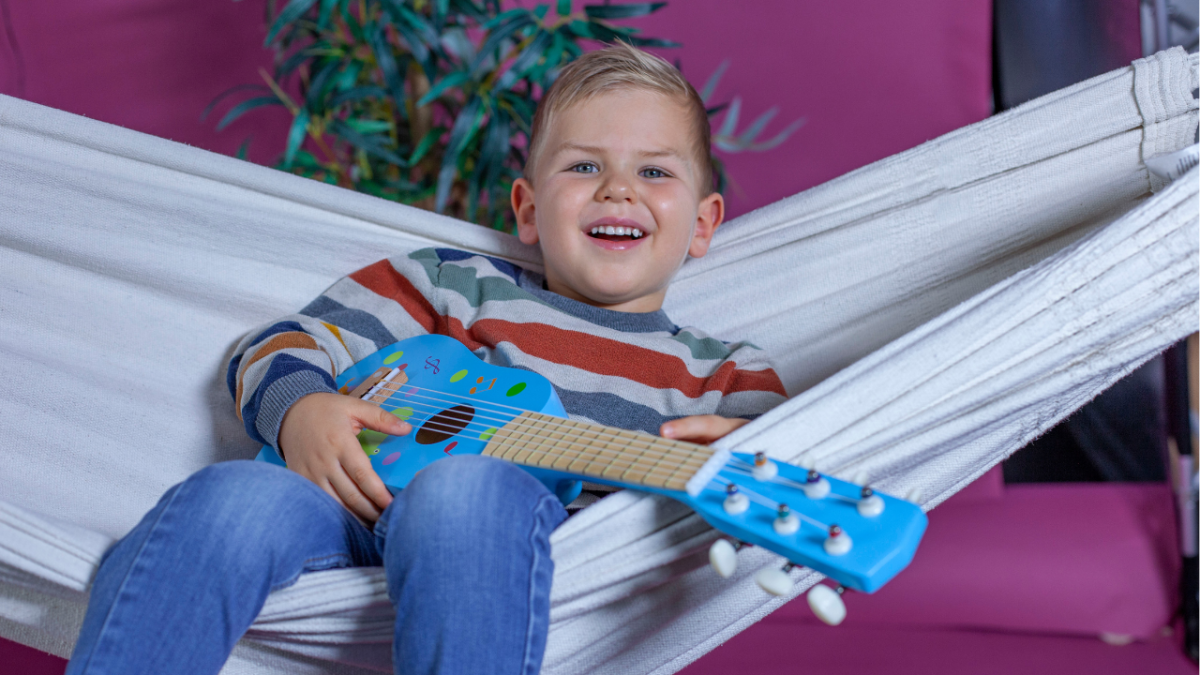
The majority of early music education courses take place in a group setting, which has the advantage that your child gets to interact socially. Less frequently, individual lessons can also be booked for particularly individual support for the little ones. It is best to get an overview of the options available in your area, compare the offers and try out your favorites. Many providers offer trial lessons so that you can get a first impression without having to commit yourself directly or sign a contract.
Step into a world full of rhythms and sounds: make music with Eichhorn wooden instruments
Early musical education offers a whole range of benefits for your child: it serves to stimulate the senses, can contribute to the training of body awareness through movement elements, offers space for emotional development and has a positive effect on motor skills, sense of rhythm and cognition. In addition, your child can expand their social skills by making music together with others and naturally develop an interest in music and instruments.
You can find child-friendly wooden music toys that are ideal for early musical education in the Eichhorn Shop.
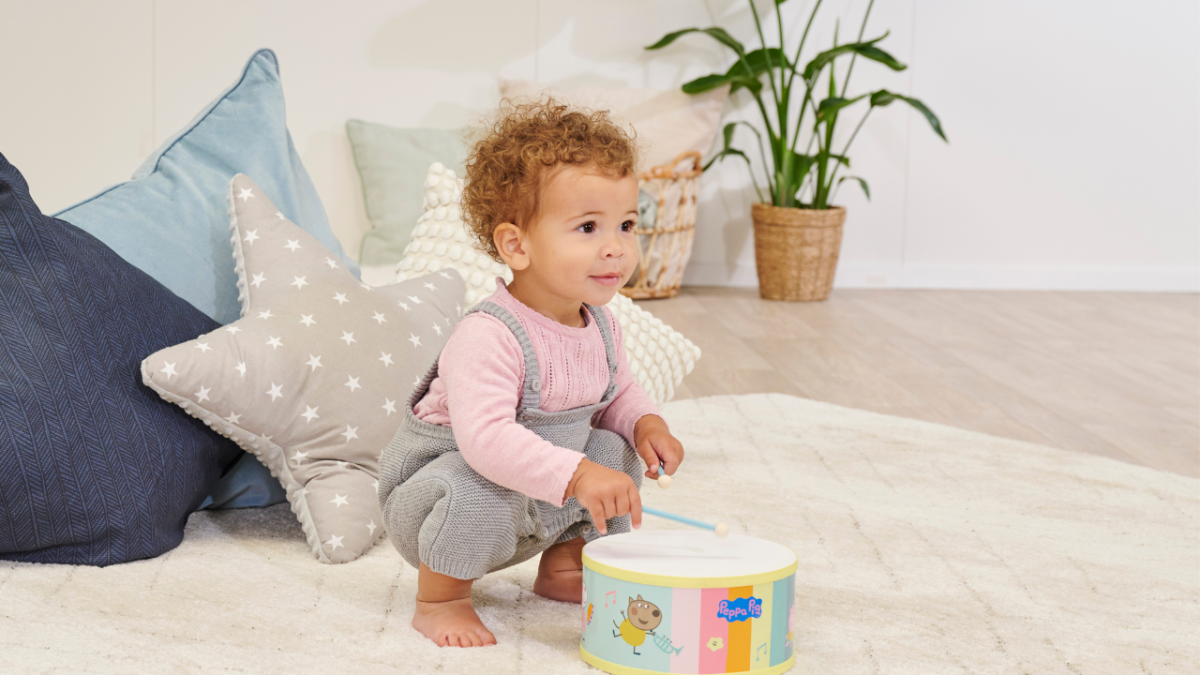
FAQ: Your questions about early musical education
Finally, we answer the most frequently asked questions about early musical education:
What is meant by early musical education?
The term "early musical education" refers to the early promotion of children in the field of music. In terms of content, the educational approach includes singing, listening to music, playing instruments and dancing.
Early musical education: when do you start with children?
Early music education courses are mainly aimed at children aged 3 and over. However, making music with children is generally possible at an earlier age. The first nursery rhymes, rhythmic verses and musically accompanied finger games are fun even for small children and bring them into contact with the world of music in a playful way.
What effects does music have on children's development?
Exposure to music can have a positive effect on these areas of development:
Motor skills
Body awareness and movement skills
Social skills
Emotional development
creativity
Sense of rhythm
Sensory perception (especially hearing)
Concentration
Logical thinking
Language skills
How does music support children with speech problems?
The development of language and musical development have many things in common, which is why early musical education offers great added value, especially for children with language problems. Therapy content and support programs with music can therefore be an extremely valuable part of language support.
How does music help children to process emotions?
Music can arouse emotions, but it can also be used to express feelings. In both cases, it helps your child to deal with their emotional world in an age-appropriate way and to come into contact with their emotions.

